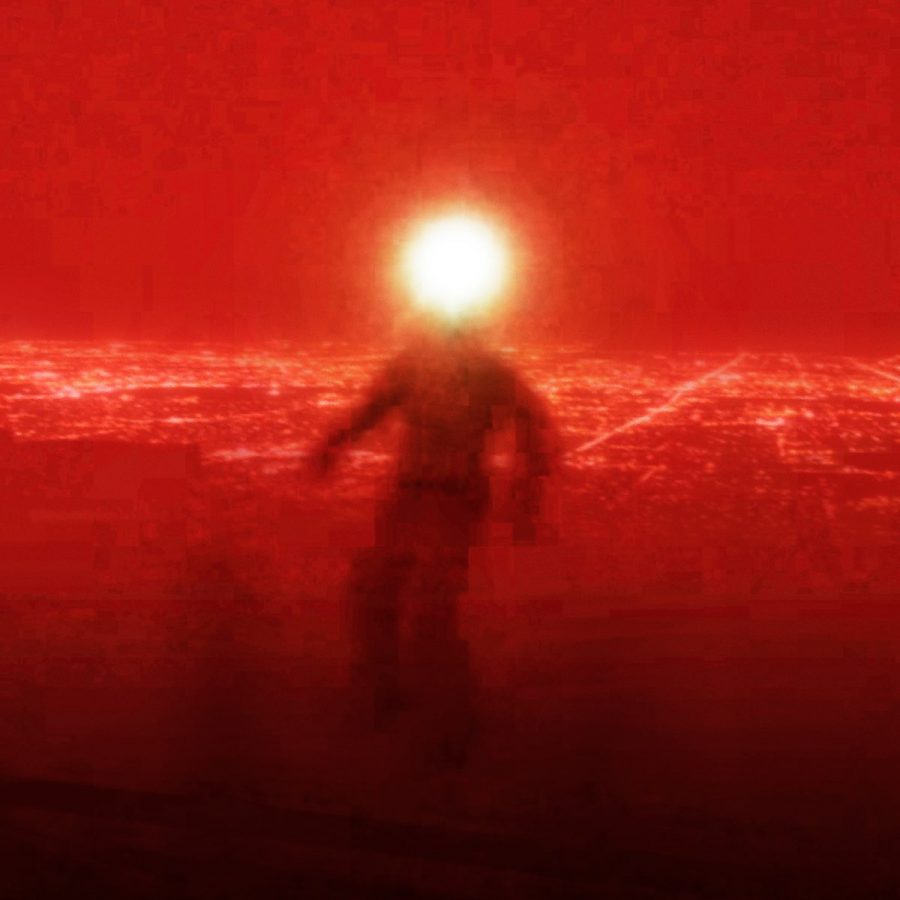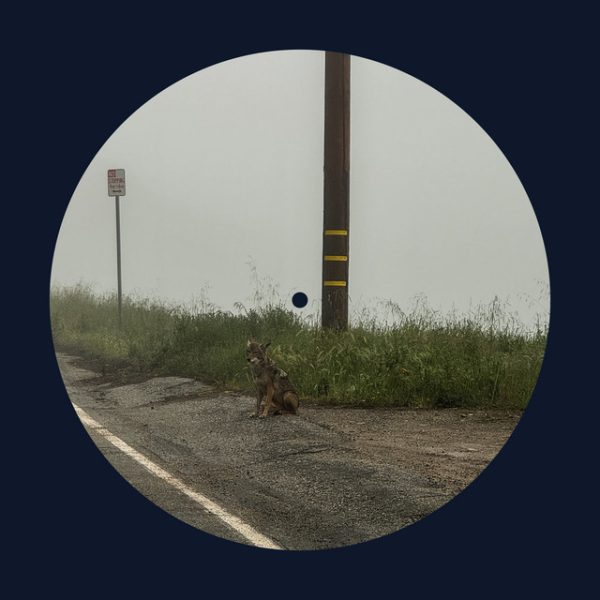One of the Most Heartbreaking Records of the Year: Injury Reserve’s “By The Time I Get To Phoenix”
Injury Reserve’s sophomore record is desolate, intense, and abstract; creating one of the most harrowing record experiences in the genre of hip-hop.
September 28, 2021
On June 30th, 2020, Injury Reserve posted a tweet stating that one of the two vocalists of the group, Stepa J Groggs, had passed away at the age of 32. Following this announcement, along with a link to a GoFundMe page to the family, there wouldn’t be anything in the way of posts from the group until over a year later, with an explanation as to where they were throughout that time, alongside an album announcement. The post, which can be viewed on twitter here, details the context for the record. The majority of the record, being made prior to his passing, was in light of other personal deaths surrounding their families and the social state the pandemic created. After sitting on the record for a while, the group felt as though the record resonated even more in light of his passing, and that it almost foreshadowed the situations they would be going through just prior to the release of the record. As a result, they stated that their second record, By The Time I Get To Phoenix, with a title stemming from the last creative conversation they had with Stepa, where he suggested it, would be released on September 15.
Without much time for fans of the group to even process this post, the first single for the record, “Knees,” would be released the next day. The song, as would end up being the case for the rest of the record, is an incredibly abstract and depressing piece. The lyrics intensely depict an inability to grow emotionally, connecting it to the pain of real, physical growth. The chorus states in repetition that there’s genuine pain from growing, though, in his case, through weight gain, all of which is by means of negative coping mechanisms (specifically alcoholism), which are meant to distract from the emotional pain of death. It describes a cycle of trying to be able to cope with emotional pain, which causes physical pain, which then gets coped with in the same, negative ways, all of which only add to both. It’s instrumental does a fantastic job of complimenting this intense storytelling; it samples a crashing of jazz instrumentation from math-rock band Black Midi, with their monstrous jazz-rock track “Sweater.” This sample plays in between each line being delivered throughout the Injury Reserve song, only being drawn together by small hits of snare and spoken word that’s almost impossible to understand, all of which gives an indescribable power to each line the vocalists say across the track. It gives you just enough time to understand what they’re saying, but not enough to fully process it emotionally before the next line is made in the song. The outro of the track is even more genius than it’s beginning, though, as it fades into a pitched down, drone version of the instrumental, only guided by the sound of a clock ticking, meant to represent the exact passing of time that’s causing the issues in the lyrics. It’s a track that, like many on the record, requires multiple revisits to truly be able to appreciate fully.
With only one more single being released just prior, the record came out without much in the way of preparation or promotion. Based on the little amount of music we’d heard already, and the incredibly abstract and bizarre nature of all of the tracks on the record, nobody could really know what to expect from the record. Personally, I was left questioning whether or not this upcoming record would hold up to the bizarre, desolate, and unique nature of these singles, and yet the release itself felt, somehow, leagues above my expectations for it to be as weird of a listening experience as it was. This is what made the opening track to the record, “Outside,” as epic, suspenseful, and emotional as it is. The song is the longest on the record, going for just over 6 minutes, and yet the time is spent so well that it barely feels like it’s anything longer than just a 1-minute long intro track. The song goes through two major phases, which combine together into an incredible buildup into the next track on the record. The first phase of the track is spoken word over an atmospheric drone. The character Ritchie portrays on this track feels similar to that of a leader of a rebellion. His lyrics also have two sections; the first of which is fast-paced and much more aggressive than the second, who comes off more collected and wise. The character describes the emotions of some sort of argument, which is where the rebellious themes come from, offering this second party the ability to expose their thoughts alongside them, while Ritchie’s character also makes it clear that there’s “no happy medium” to their decisions.
The second half of the track creates a huge atmosphere with a solely instrumental buildup, allowing everything that was just said to sink in, and get you into that same headspace of the character, which then pulls you into an emotional connection with the rest of the record. The buildup cuts out, leaving nothing but heavy, glitched out breathing, which transitions into the second single from the record, “Superman That.” The song uses heavily distorted, start-and-stop synths, a sample of Black Country, New Road’s “Athens, France,” digitized noise, and blastbeat drums throughout its entirety to create a disorienting and rule-breaking instrumental. The vocals have vocoded passages over the instrumental, almost like they’re having to sing over the intensity of it’s beat, which is an effect that gets used a lot on the record, and to the album’s advantage in every instance. The atmosphere this track creates only adds to the intensity of what was on the intro track, serving as an amazingly well done payoff to the intro’s constantly-building nature.
The intense, off-the-wall instrumentals only continue to push boundaries on songs like “Footwork in a Forest Fire.” The track, which has lyrical parallels to the forest fires in the California area, creates the exact image of the feeling of being in an event like that through its beat. The track utilizes demented guitar passages and fast-paced, primal drums, all of which create in incredibly intense atmosphere. Groggs gives his first full verse of the record here, where he gives a disorienting amount of energy, only to be followed by one of the best verses from Ritchie on the entire album. Groggs then comes in one more time, almost screaming over the beat with repetitions of the line “nobody knows,” which builds until the track dissolves as its outro, adding an incredible set of noises to the mix on the record.
This track seemingly ends what’s almost an act of the record; from here, the soundplay becomes much more drone and noise influenced, giving some of the most experimental and unique points on the record. This second act of the record starts with the track “Ground Zero,” which uses whispered vocals throughout the track. This, geniusly, is contrasted by the following “Smoke Don’t Clear,” where Ritchie delivers one of the most over the top hooks I’ve heard, and yet it’s executed fantastically. The heavy bass creates a crazy effect, almost as though the smoke he talks about throughout the song is what’s making up the beat he’s rapping over. It feels almost like a low-quality phone recording trying to pick up the sounds of wind, and yet it somehow manages to be catchy and engaging throughout the entirety of the track.
Another incredible quality of the music here on the record is it’s wide range of genres, all of which manage to still come off coherent and connected in a largely impressive way. Tracks like “SS San Francisco” and “Wild Wild West” all have large western music influences to them (if the second title didn’t make that obvious enough). The first of which, for example, opens with an acoustic guitar and sound palette similar to that of the song “Fire” by Kids See Ghosts. High pitched, sampled vocals guide the first verse, which is almost whispered in a similar style as “Ground Zero,” leads into the only feature on the record from ZelooperZ, who gives a performance similar to Pusha T at their absolute peak. The lyrics, though, are just as intense as the rest of the record; showcasing an emotional breaking point for Ritchie, where he refuses to endure the same pain, emotionally and physically, that the rest of the world has to deal with, saying that he can’t go through with it and that he can’t be forced to do so.
The other track in this style, “Wild Wild West,” takes an entirely different approach to the same central instrumental ideas. It shows a mastery of usually-annoying mixing features such as panning to create a heavily glitched beat – the rhythm is, instead of being created through standard means like percussion, is instead created by the literal start-and-stopping of the entire instrumental. The song, lyrically, goes into detail on rapid industrial growth, while also giving meta critiques on the presence of conspiracies as of late. The track describes the building of 5G towers, all while also making passing references to futuristic characters, such as Will Smith for, likely, his role in the Men in Black franchise, as well as inspector gadget, and so on. It establishes a theme of a futuristic, western setting, accomplishing incredibly creative worldbuilding.
The track prior to “Wild Wild West,” which serves as the assumed last track of the second portion of the record, continues in the idea of death in just as creative of a way many of the other tracks that have had these themes. The song, titled “Top Picks for You,” describes the emotional state of being able to see someone who’s passed away through their place online. Through means like social media, Ritchie describes a feeling as though this person who’s died continues to live through their words, posts, and “algorithms” still existing through the internet; so much so that it begins to contribute to almost a state of denial that this person has died. This track serves as one of the only true cooldown moments on the project, through its contrast of being skeletal in comparison to many of the other tracks here.
The track also hints towards the very jazzy third act of the record, serving as the perfect transition into it. For example, the song “Postpostpartum” has some of the best performances all through these means. Instrumentally, the song takes influences from tracks like “u” by Kendrick Lamar, all with an added level of haziness and ambience. It uses its depressive atmosphere, surreal refrain, and ambient outro to make the perfect transition into “Knees,” and then into the final track “Bye Storm.” With an uplifting sample on this track, giving what feels like a positive outlook on the heaviness and harrowing atmosphere that came on the rest of the record prior. The song uses the phrase “it rains, it pours” to set the tone that things are genuinely falling apart in an intense way, but then states that things have to continue to push forward despite it; it ends the record off in genuinely just as amazing of a way as it started.
This record is genuinely, wall-to-wall, one of the most groundbreaking and genre-defying records that have been released in a while. The music all feels like it’s trying to tell you everything that’s happened, all while also pushing you away. I even feel like it wouldn’t be far off to describe this record as genuinely opening up a new area for rap and hip-hop music as a whole. Fans of the record even go as far as to describe it as post-rap, which, in all honesty, is the perfect description of what’s happening here. Though it definitely is far off the beaten path for many people looking for music that’d fit well on a playlist, the music here beautifully creates an atmosphere that throws you in the face of the issues the band has dealt with throughout the process of its creation. If you decide to listen to this, and are able to give it enough listens to let it sink in, all while keeping open to the idea that this isn’t meant to be listened to in the traditional sense, it’s a legitimately amazing record, and is fully worth your time.




